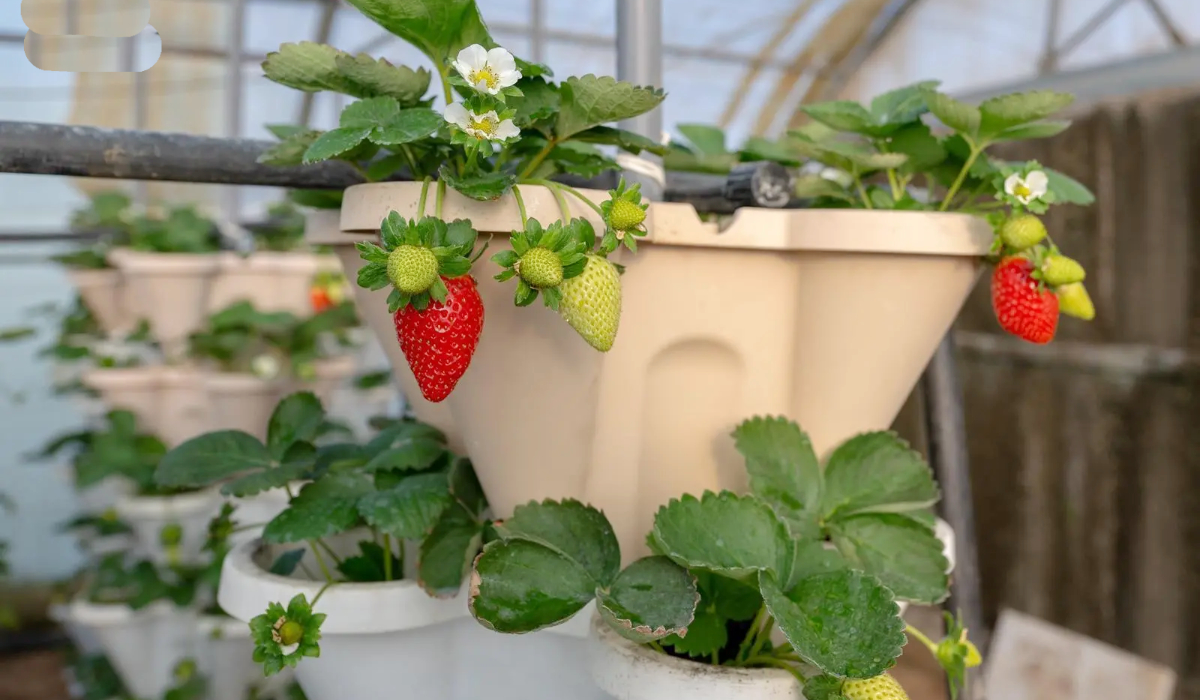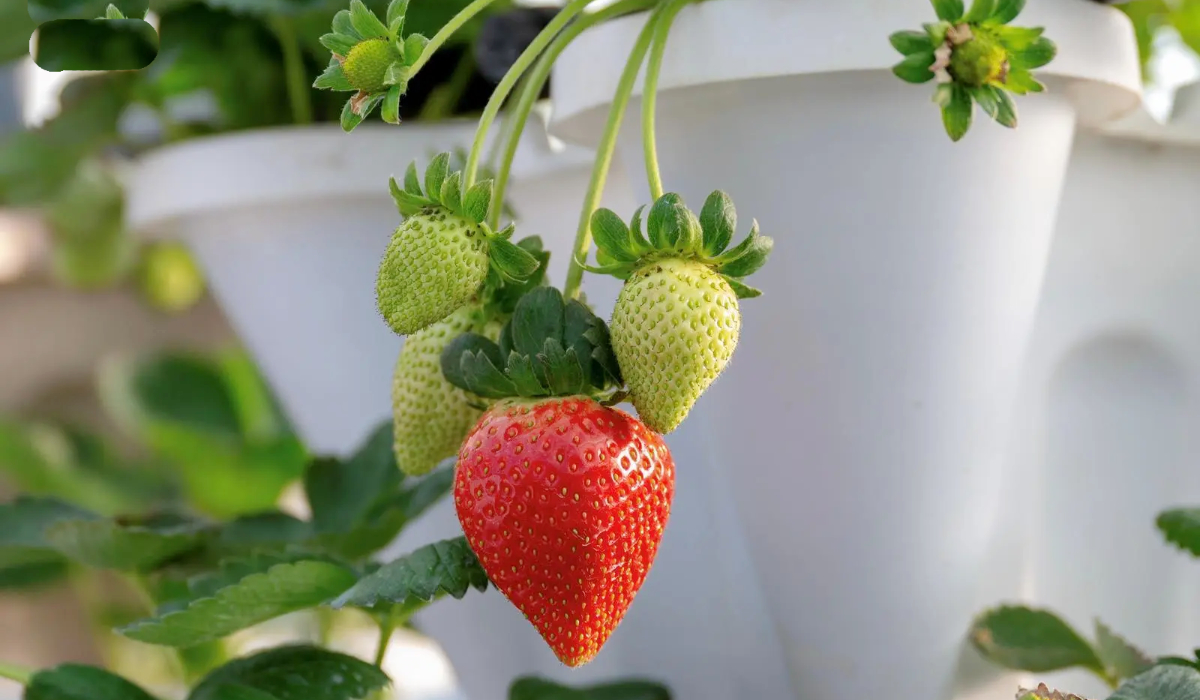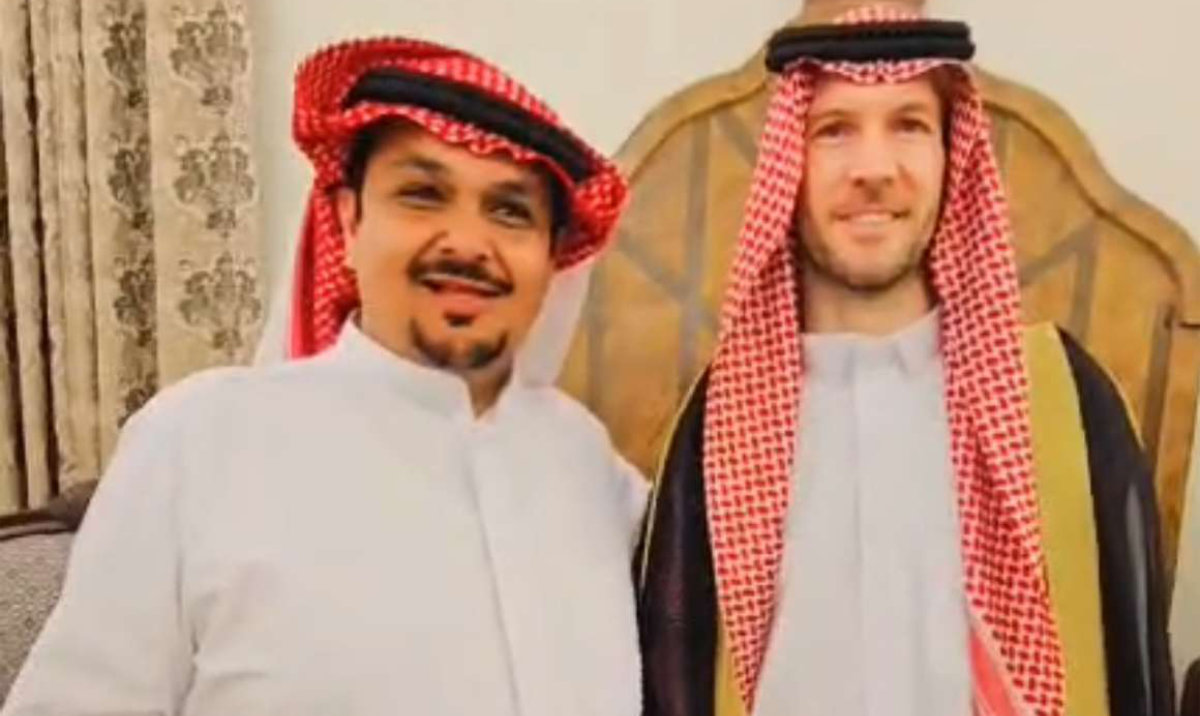QASSIM: The Qassim region has become the leading producer of strawberries and blueberries in Saudi Arabia, challenging international imports with produce that matches global quality standards, the Saudi Press Agency reported recently.
This success has been driven by many farmers’ ambition to innovate, modernize, and create quality alternatives to imported varieties.
The path to premium berry production in Qassim required multiple developments, agricultural engineer Saleh Ibrahim Al-Keaid told the SPA.

The modern farming method prioritizes organic farming, making sure all fertilizers and pesticides are safe. (SPA)
Al-Keaid said that the journey to excellence involved extensive research and collaboration with international experts.
“We spent a full year experimenting with different varieties and agricultural elements to achieve our current success,” he said.
The result is a premium product that rivals American and European berries in quality, size and yield.
FASTFACTS
• Modern approach to farming prioritizes organic farming methods, ensuring all fertilizers and pesticides meet strict safety standards.
• Advanced hydropnic systems utilize vertical farming towers — up to seven levels high —equipped with volcanic rock substrates and top-down irrigation.
These types of fruits are sensitive, requiring special soil, complementary elements, and suitable conditions through protected greenhouses.
The success hinges on innovative farming techniques, particularly the adoption of advanced hydroponic systems.

The modern farming method prioritizes organic farming, making sure all fertilizers and pesticides are safe. (SPA)
These systems utilize vertical farming towers — up to seven levels high —equipped with volcanic rock substrates and top-down irrigation.
This modern approach prioritizes organic farming methods, ensuring all fertilizers and pesticides meet strict safety standards.
Perhaps most impressive are the efficiency gains. According to Al-Keaid, the hydroponic system achieves remarkable water conservation, reducing consumption by 80 percent compared to traditional methods.
Additionally, the production capacity in hydroponic farming is multiple times that of soil-based farming.
The space efficiency is equally striking: a single greenhouse of 360 sq. meters can accommodate 9,000 seedlings — approximately triple the capacity of conventional soil-based farming.
Furthermore, caring for the seedlings is easier, requires less effort, and uses fewer fertilizers compared to soil-based farming.

































